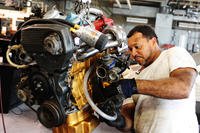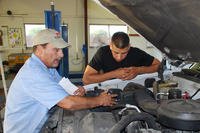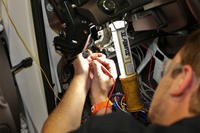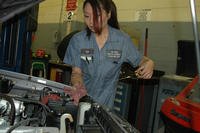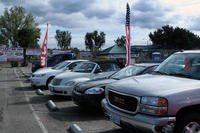Recent government reports estimate the average family devotes over 14% of disposable income to automobile expenses. As a major part of your budget, it's important to consider your purchase carefully. We often think of negotiating price or financing as the most important part of the purchase process, but these are relatively small in the overall picture. The following tips can help you make the right decision.
- Have you saved in advance? At SavvyMoney, we usually recommend that you save for a car before buying—it will save you thousands in interest and let you earn interest on your money while you accumulate savings.
- Do you really need a new car? Because it's such a major expense, driving your current car for an additional year or two can save several thousand dollars. If money is tight or you have other unmet financial goals, consider postponing the purchase especially if your current automobile is paid off. If you can continue to drive your current car, you should start to put money away now to save for when the time comes.
- Know your budget in advance. Consider your total monthly budget, including not just your current expenses but also your other financial goals. How much can you realistically afford to spend on a new car and still meet your other financial goals?
- Determine the type of car. The type of car you choose can dramatically impact how much it will cost to own and operate it. A sedan or station wagon will cost you less to operate in gas, tires, and insurance than an SUV or a truck. Unless you really need the space, towing capacity, or utility of a truck, a car will cost you much less over the lifetime of the auto.
- New or used? Buying a three-year used auto can cost one-third less than a new car. Although there are some warranty advantages to buying a new car, you usually get much more value from buying a used auto.
- Look at Total Cost of Ownership (TCO). TCO is a measure of how much the auto will cost to own each year, including depreciation, fuel, maintenance, and insurance. Different autos can have dramatically different costs of ownership than can add up to over $5,000 over the period you'll own your auto. Online calculators can help you compare TCO for different makes and years of autos.
- Decide your price in advance. Car buying is stressful and once you've finally found your car of your dreams, you can be in such a hurry to close the deal that you forget about your budget. Do your homework in advance to determine what type of car you want and how much you are willing to pay. For new cars, you can find dealer invoice information online and you can use guides like Kelly Blue Book to determine the value of used cars in your area. Once you know how much you should pay, negotiate to stay within your guidelines.
- Check your credit score. You can get a free score on websites such as CreditKarma or Credit.com. If you have poor credit, you can often improve your credit dramatically in 6-12 months by paying on time and aggressively paying down debt. The difference in the APR you'll pay can amount to thousands of dollars, so taking the time to get your credit in order can pay off in spades.
- Arrange financing in advance. If you haven't saved for your purchase in advance, you will do well to shop around for financing in advance. Credit unions often have excellent rates. Taking the time to shop for rates before you shop for a car will make sure that you don't rush this important element of your purchase.
Following these few tips will guarantee that you make a well-informed purchase that will fit your finances and keep you from having buyer's remorse down the road. Happy driving!





